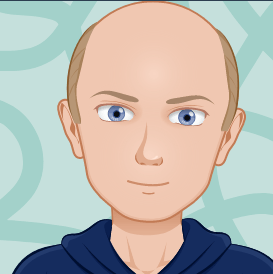
“Frostpunk” is cold and claustrophobic. It gives you a handful of options to play with, a steep learning curve, and some cruel certainties. But then… why is it so damn good?!
About the game
You are “the Captain”, and you lead a crew of refugees who fled London in the wake of a global cataclysm. Escaping from a world destroyed by frost, your people reach a steam generator – their only source of warmth. There are no homes, few resources, and the weather outside is frightful (forgive me, I’ve been playing this around Christmas time).
You must build a settlement which will be able to survive the oncoming monster winter. There are a few things at your disposal: coal, wood, steam, steel and food will keep your rickety pyramid of needs in a passable shape; research and construction will enable your people to build and think their way out of trouble; hope and discontent will act as the barometer for how far you can push your people.
This pushing gets done through various means – apart from the economy of the resources listed above, you also act as your people’s law-giver. This starts out in reasonable territory: how long do you want the working day to be? What of the kids, what of the amputees? Should we have a pub? Soon enough, though, the repertoire of levers in your “Book of Laws” gets more varied, and darker.
About what it taught me
I’m a sucker for a good strategy game (one of the longer essays in this project is bound to be on “Civilization”), and I usually enjoy being able to freely pick and choose my path to victory. “Frostpunk” demands strategic choices, but the room for maneouvering is much tighter. This meant that the game forced me to focus a lot more: instead of my usual “mess about and find out” approach, I took a good few defeats on the chin, before beginning the squeaky-bum-time task of budgeting for every hour of every day, every worker, and every minute of steam power. When victory came, it never seemed assured. “Frostpunk” always felt brilliantly tense.
From a game design perspective, the game taught me a lot about the benefits of restricting options. Again, “Civs” players are free to indulge in dozens of game-winning possibilities, endless variety of maps to explore, and a plethora of things worth pursuing or managing. “Frostpunk” is the minimalist opposite: it dumps me in a frozen crater, makes me track seven things, gives me less than fifty days, and still has me glued to my screen for hours on end.
The most intriguing lesson for me, though, came from the “superstructure” imposed on Frostpunk’s world by the Book of Laws. As my city grew, I found myself with more mouths to feed, and more brutally cold days. Surveying the political options on offer, I shuddered at times. Without spoiling the game too much, I can only say that “Frostpunk’s” creators must have anticipated my ethical dilemmas. To quote another famous fictional leader, “Sooner or later, the day comes when you can’t hide from the things that you’ve done any more.”
Not just me?
It’s interesting to read the available research into moral and ethical choices of video game players. According to this study, players who “disengage” from the game morally are more likely to make “evil” choices in games – maybe I cared too much about how good “Frostpunk” was to pull these final levers? In another study, the discussion shifts slightly to encompass the choices of the game designers as well as the players. It’s important, here, to recognize that “Frostpunk” seems deliberately engineered to lean into these tricky dilemmas, and to gain even more drama and suspense from dangling these solutions in front of players at tricky times.
What it will cost you
“Frostpunk” retails for around 30GBP, or around 60GBP with all the extra content. However, the sequel to the game is coming soon, which means that (as of December 2022) you will almost always find it heavily discounted. I played the Steam PC version.
Book pairing
“The Gulag Archipelago” by Aleksandr Solzhenitsyn is a grim but unavoidable gut-punch of a recommendation. Ursula K. Le Guin’s “The Left Hand of Darkness” is a similarly charged, claustrophobic and beautiful winter’s tale of survival, knowledge, and power.
Music pairing
The game has a decent soundtrack by Piotr Musial, although – unless you’re a savvy genius who passes each game at first attempt – you’ll be hearing a lot of it! If you want more punk with your “Frostpunk”, Ramin Djawadi’s score to “Pacific Rim” packs a head of steam. For more “frost”, go for Trent Reznor’s and Atticus Ross’ score to “The Girl with the Dragon Tattoo”. Plus, maybe, Antonin Dvořák’s 9th Symphony for some Victorian optimism (misplaced).
What else to play
“Sim City” series is the ultimate city-builder, and much more relaxed than this. “Civilization” series, as I mentioned, is the polar opposite of “Frostpunk”. But if you feel like you haven’t had enough punishment by harsh and unforgiving planets, then “Dune: Spice Wars” might be your thing?
This post is part of “100 games, and what they taught me” – a series of short essays about the games I play and the things I learn from them.
(Photo by Aaron Burden on Unsplash)

I am an editor, author, translator and teacher based in the UK.
I am always looking to get involved in new projects. My areas of expertise:
ELT publishing – print and digital
Language learning
Translation – POL-ENG-POL, non-fiction
Editorial project management
Does it look like we could work together? Download my CV or get in touch via e-mail.